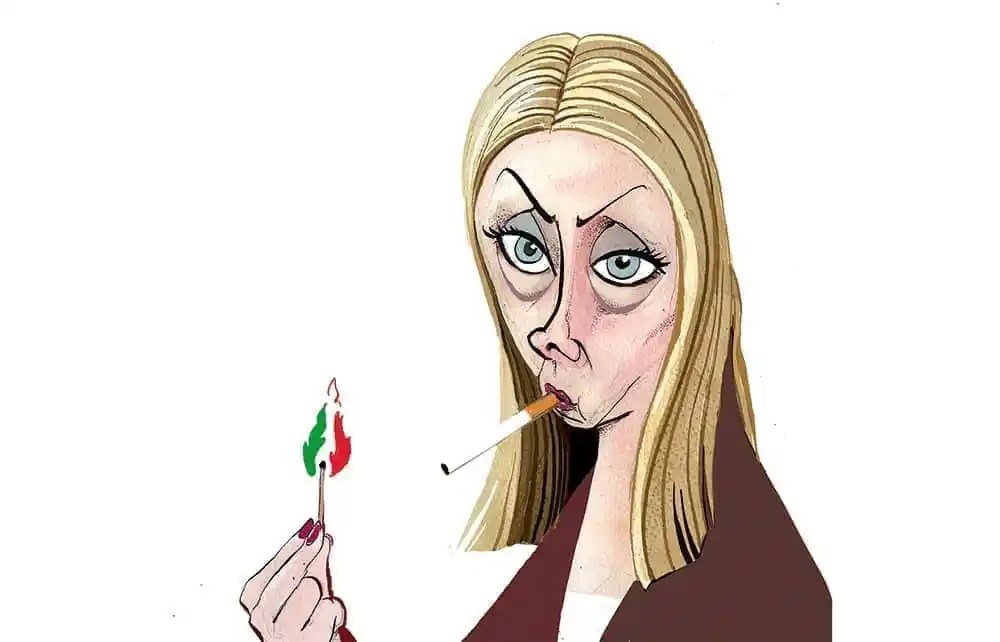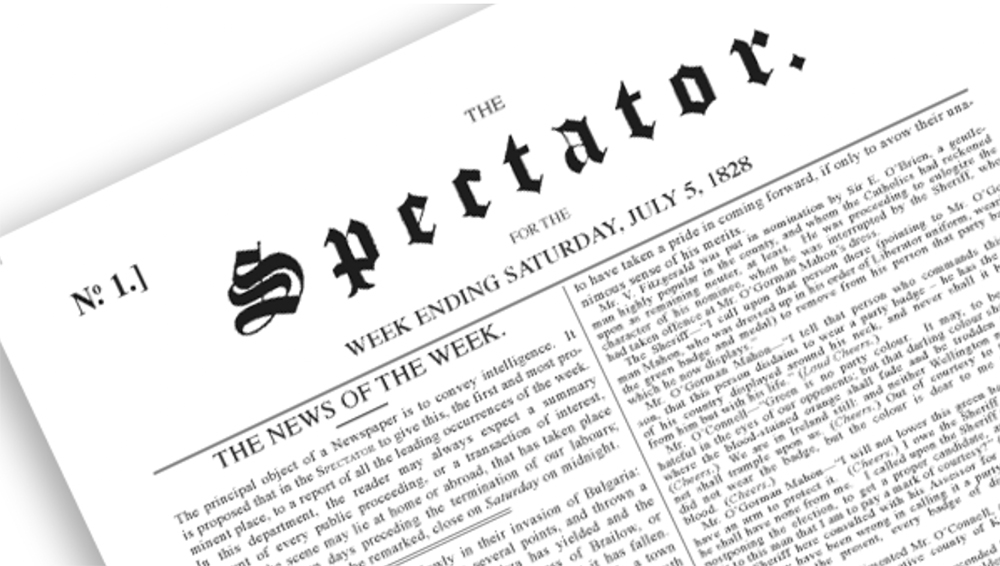Italian Prime Minister Giorgia Meloni has declared war on Italy’s judges who are trying to kybosh at birth her much vaunted scheme to offshore illegal migrants to Albania.
Last Friday, a court in Rome dealt Meloni’s Albania scheme a potentially fatal blow by ruling that the first migrants sent to Albania cannot be detained and must be freed because their countries of origin – Bangladesh and Egypt – are unsafe.
The Toghe Rosse have Meloni in their sights
She has now issued an emergency decree to change the law and her ministers are confident that it will stop the judges making similar rulings in the future.
Meloni’s Albania scheme launched last week and is seen across Europe as a potential game changer in the battle to stop illegal migrants. The aim is to ferry up to 3,000 migrants a month picked up in the central Mediterranean straight to Albania 750 miles away to process and repatriate them in record time. It is much easier to achieve this in Albania than Italy.
Only adult male migrants from safe countries, by definition not refugees, will be sent to two purpose-built migrant centres in Albania which are under Italian jurisdiction. Failed asylum seekers will be detained pending deportation. This year the top country of origin for migrants arriving by sea in Italy is Bangladesh. Egypt, Tunisia and Pakistan are in the top ten, as are Guinea and Gambia. None of these countries is at war.
Sixteen migrants were ferried by the Italian naval vessel Libra to Albania last week as the scheme launched. Four were immediately sent back to Italy because they claim to be minors, or else were deemed vulnerable. A court in Rome then rejected the asylum applications of the other 12 on the grounds that they were from safe countries, namely Bangladesh and Egypt, thus not refugees.
Then, on Friday, a second court in Rome – called to validate their detention pending deportation – ruled that Bangladesh and Egypt, though not at war and on Italy’s list of safe countries, are not safe.
So the migrants – the court ruled – cannot be detained. They were therefore brought by a coastguard vessel to Bari in south east Italy where they are now housed in an open migrant centre pending their appeals which will be decided within 14 days. They will probably just disappear as so many illegal migrants do.
It has been estimated that the cost of ferrying these 12 migrants from the Sicilian Channel to Albania and from Albania to Puglia is €20,000 per migrant. That’s a quarter of a million in total. This is a perfect example of what the migrant crisis is doing to Europe.
If allowed to stand, the Rome court ruling in the case of these 12 migrants will mean that no migrants can ever be taken to Albania. But Meloni is absolutely determined to overturn it. On Monday evening, her cabinet issued an emergencydecree which turns the government’s safe country list from secondary to primary law. She and her ministers say this cannot be overruled by the judges.
The clash between her government and the judiciary signals the start of what many are calling the third civil war between Italy’s elected governments and unelected judges in the past three decades.
In the first, during the early 1990s, Italy’s judges put on trial hundreds of businessmen and politicians for paying and accepting bribes in a judicial crusade known as Mani Pulite (Clean Hands) which caused the collapse of the so-called first Republic. The Italians, by and large, backed them.
The only political party left untouched was the Italian Communist party which as a result stood on the verge of power. To its fury, and that of the judges, the media tycoon Silvio Berlusconi threw his hat into the ring and won the 1994 general election.
So began the second civil war. Italy’s judges proceeded to subject the four times prime minister to dozens of criminal trials. But the Italians did not back the judges and kept voting for Berlusconi though in the end he was forced to resign in 2011.
This time, in the case of Meloni, the Italians absolutely do not back the judges.
Italy’s first female Prime Minister – after two years in office – is riding higher than ever in the opinion polls. One reason is that the Italians voted for her to stop illegal migration. She is also – incredibly – backed in her crusade to stop the boats by many in Brussels. The majority of EU leaders now want to set up a similar EU-run scheme to offshore migrants. The EU Commission President, Ursula von der Leyen, has praised it as ‘out of the box thinking’ and ‘in line with obligations under EU and international law.’
Obviously, Meloni’s opponents are cock-a-hoop at the refusal by the judges in Rome to validate the detention of the 12 migrants from Bangladesh and Egypt and say the ruling kills her Albania scheme dead at birth.
But as she told journalists:
‘I think the decision of the judges in Rome was a decision that was politically biased… Apart from that, the real question is far wider because in essence what these judges are saying is that safe countries do not exist. So I communicate officially here that the problem is not in Albania. The problem is that no one can ever be repatriated. The problem is that you can’t ever send people back. The problem is that you can’t implement any programme to defend your borders.’
In Italy, judges, also known as magistrates, are a separate profession from lawyers. They investigate, prosecute and adjudicate. Many make little effort to hide their left-wing sympathies and are nick-named Toghe Rosse (Red Gowns).
Now the Toghe Rosse have Meloni in their sights.
The newspaper Il Tempo has just published an email sent last week by a top judge to colleagues in which he implies that Meloni is more dangerous than Berlusconi and they must find a remedy. The judge and his colleagues who received his email are all members of the left-wing professional body Magistratura Democratica.
‘Meloni is not the subject of any judicial inquiries and so is not motivated by personal interest but by political vision and this renders her much stronger, and her actions also much more dangerous,’ he says in the email.
The idea of politicised judges will probably strike a British audience as absurd and impossible – although perhaps less so after Brexit and Rwanda.
But in Italy – though invariably denied by the judges themselves and their left-wing supporters – it is more or less a given.
Even with the best will in the world a close look at the Rome court ruling on the 12 Albania migrants makes it difficult to conclude that it was anything other than a political decision.
The court based its decision on a recent ruling by the European Court of Justice (ECJ) in Luxembourg on 4 October.
In 2022, a Moldovian was refused asylum by the Czech Republic on the grounds that Moldova is on its list of designated safe countries, with the exception of Transnistria. The ECJ ruled – if I have understood its tortuously written judgement published in French – that because the Czech Republic had designated Moldova as only partially safe cannot be a safe country. As a result, the Moldovan – ruled the ECJ – cannot be sent back to Moldova.
But what does this have to do with migrants from Bangladesh and Egypt in Albania who want to come to Italy? Italy has designated both countries as safe countries, not just partially safe, as the Czech Republic had done in the case of Moldova.
Carlo Nordio, Italy’s Justice Minister and himself a former judge, said at a press conference on Monday that the ECJ ruling was ‘written in French and probably not properly understood or properly read’ by the Rome judges. The government has appealed their ruling. On Wednesday, at question time in parliament Nordio said that the Rome court had not bothered to explain, in relation to each migrant, why it reached its decision, as required by law.
Regardless, Meloni has now changed the law on Italy’s safe country list to make it a primary law anyway. This, according to her ministers, means the judges cannot reject it. They can only appeal it if they feel it contravenes the Italian constitution or EU law.
Asked at the same press conference if Italy’s judges from now on could still send migrants in Albania to Italy Interior Minister Matteo Piantedosi said: ‘No, because it’s controlled by a primary law.’
We shall soon find out if he is correct.








Comments